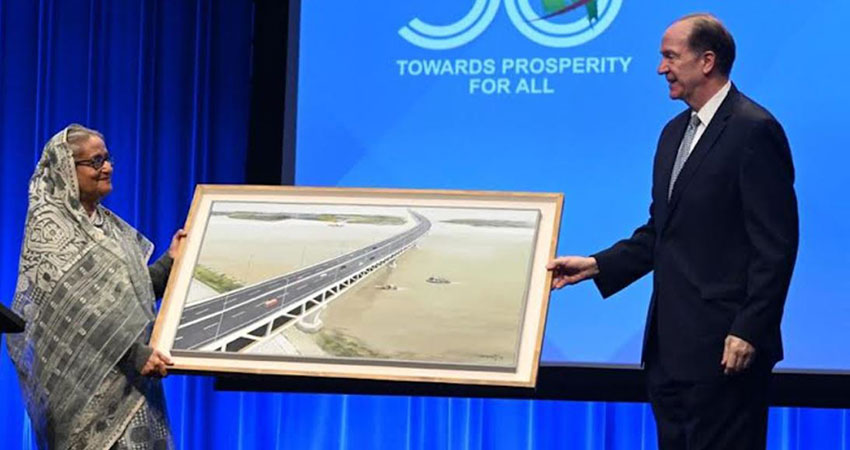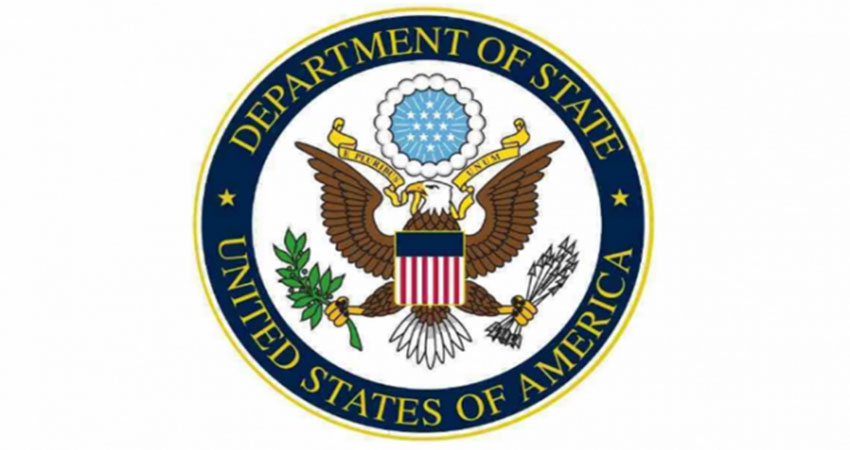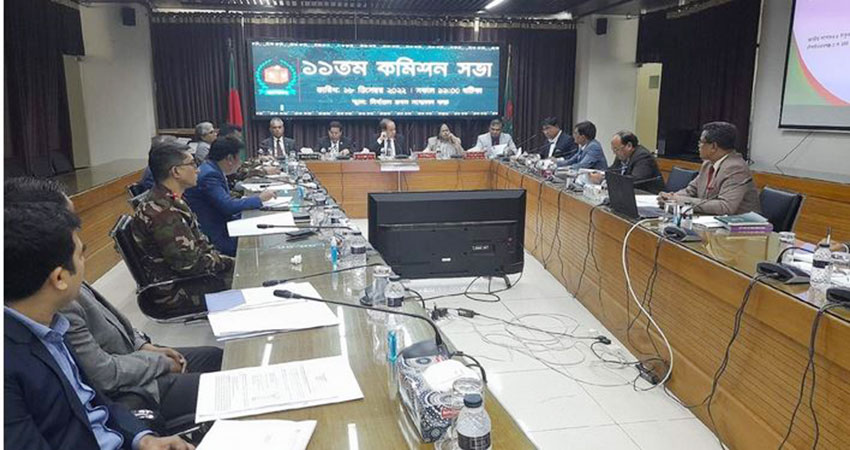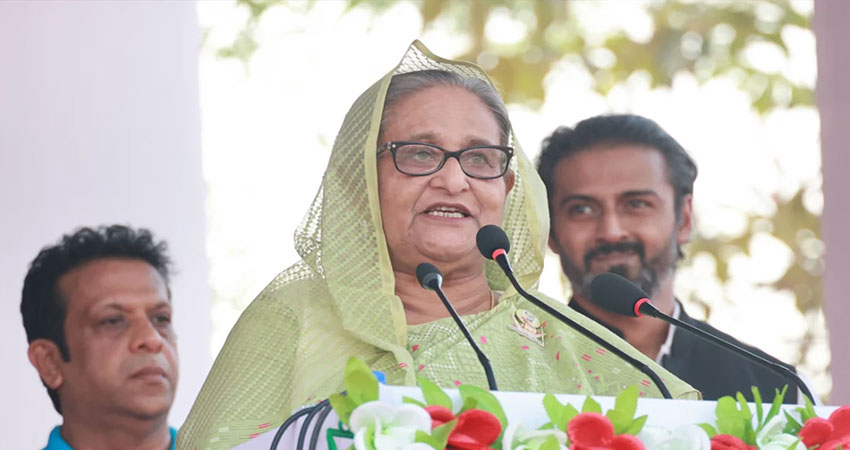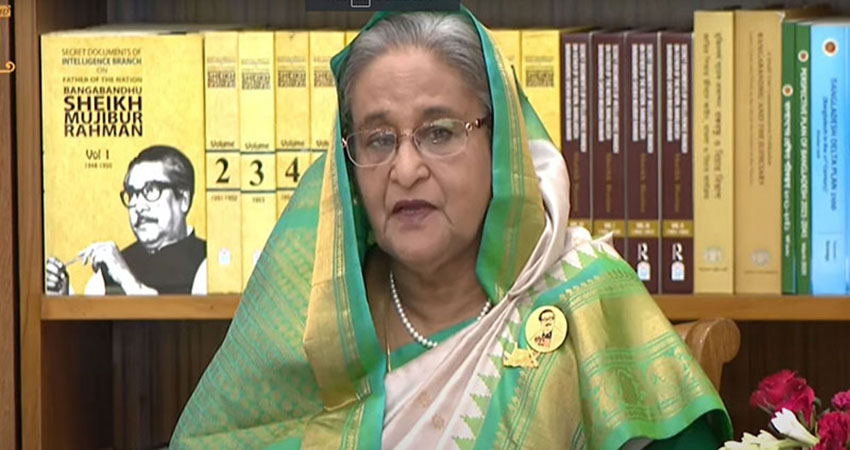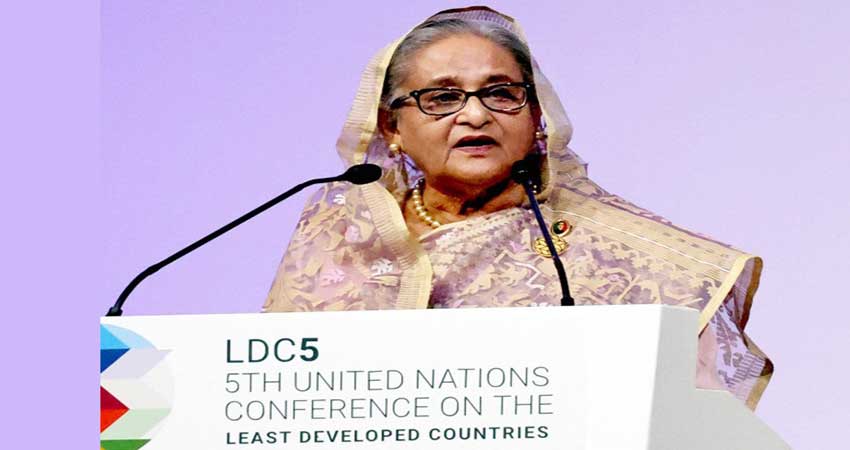Prime Minister Sheikh Hasina has sought enhanced World Bank (WB) cooperation for Bangladesh's smooth transition towards a developing nation, subsequent graduation as an upper-middle income country and implementation of its Delta Plan-2100.
"Bangladesh is preparing for smooth and sustainable graduation from the UN LDC status in 2026. I request the World Bank to support our human capital and institutional capacity development programmes for a smooth transition. The critical IDA window needs to be preserved and continued," she said.
The Premier has placed five specific suggestions before the WB that need to be taken into consideration by the global lender considering upcoming development imperatives while addressing the plenary session on "Reflection on 50 years of World Bank-Bangladesh Partnership" held at the Preston Auditorium of the WB Headquarters.
On the occasion, a deal of 2.5 billion dollars was signed between Bangladesh and the World Bank to implement five projects.
The premier also presented a picture of the Padma Multipurpose Bridge to the World Bank President at that time.
She said Bangladesh will continue to invest in infrastructure and logistics for realizing our vision to become a high-income economy by 2041.
"I would expect the World Bank to engage in both our physical and social mega-projects in the coming years," the prime minister said.
She said Bangladesh has aligned UN SDGs with its national aspiration to become an upper-middle-income country by 2031.
"There is an urgent expectation that the World Bank and other development partners deliver increased, concessional and innovative financing for SDG implementation," Sheikh Hasina said.
The Premier mentioned that ongoing global multiple crises, caused by the pandemic, armed conflicts and climate emergency, have put most developing economies under serious stress.
Despite the multiple crises steamed from the pandemic and arms conflict, she said some of the development partners have chosen to increase their lending costs and interest rates, which detract from their core mandate.
"I call upon the World Bank and other development partners to find viable alternatives so that our economies can cope better with the emerging challenges," the Premier said.
Bangladesh hopes that the World Bank's enhanced engagement in climate action would help address the wide gaps in financing under the Paris Agreement, she said.
"We would stress the importance of equal distribution of financing between climate mitigation and adaptation," the prime minister said.
Sheikh Hasina said Bangladesh has emerged as a global role-model in disaster management and preparedness and invested heavily in early warning systems, disaster-resilient infrastructure, and community-based interventions.
Describing Bangladesh as a living laboratory of climate adaptation, featuring a number of nature-based and technological solutions, she said, "I invite the World Bank and other development partners to join us in implementing the projects under our Bangladesh Delta Plan 2100."
On the Rohingya issue, the prime minister said they have been working with the UN and other international agencies to secure their safe, dignified and voluntary repatriation to Myanmar, but not a single person has returned till to-date.
"The situation is getting increasingly difficult for us, with growing security implications for the wider region. I thank the World Bank for joining us in our humanitarian endeavour and for the $590 million grants for the Rohingya and their impacted communities," she said.
Sheikh Hasina said Bangladesh has offered shelter to the forcibly displaced Rohingya from Myanmar over the last four decades and their number has reached 1.2 million since their expulsion following mass atrocity crimes in August 2017.
Sheikh Hasina said a false allegation of corruption was brought against them regarding the construction of the Padma Bridge.
The prime minister said she assumed power to bring smiles to the faces of distressed people not to build her own fortune.
She greeted the countrymen for getting the people beside them as near and dear ones after losing everything that includes her parents and three brothers on 15 August, 1975.
The primer said she had to face many risks in her life, but she never bows down her head. "I never want to dishonour the countrymen by bowing down my head," she said.
Reminding the countrymen that Bangalee nation is a victorious nation, she said, "We want to go ahead with keeping our heads high as a victorious nation".
She continued that the unprecedented development of Bangladesh has been possible as the people who were around her had worked with sincerity and dedication and gave her unwavering support.
PM's Information and Communication Technology (ICT) Affairs Adviser Sajeeb Ahmed Wazed, Foreign Minister Dr AK Abdul Momen, Planning Minister MA Mannan, and PM's Private Industry and Investment Adviser Salman Fazlur Rahman, among others, were present.
The WB President David Malpass and its Former Chief Economist Kausik Basu, spoke at the programme while the global lenders VP Martin gave the closing remarks.
The Premier will later attend a high level business luncheon after the plenary session with WB President, MDs and VPs at East Dining Room the World Bank.
She, earlier, addressed a meeting with the WB Board members at Shihata Conference Room at WB headquarters here.
On her arrival at the WB headquarters in Washington DC, PM Hasina was received by the Country Director of the World Bank to Bangladesh Abdoulaye Seck and its SAR VP Martin Raiser with a flower bouquet.
At the outset of the programme, the PM Hasina with World Bank President David Malpass jointly opened a photo exhibition and walked-through some of the key elements of the exhibition.
The Premier also witnessed a dance performance.
A video presentation on "Bangladesh-World Bank 50 Years of Partnership" was screened at the function.
The prime minister, earlier, on 28 April reached Washington DC to attend the WB programme.
Sheikh Hasina said she is pleased to join you all to mark Bangladesh's partnership with the World Bank over the last 50 years.
"I thank President Malpass for his invitation and hospitality. I am delighted to see a good number of Bangladesh nationals serving the World Bank," she said, adding Bangladesh will continue to move forward undeterred.
The Premier said the WB has been consistently supporting Bangladesh as a leading development partner, adding that the global lender contributes nearly 32% of the current foreign assistance for Bangladesh under the ongoing IDA programmes.
"Additionally, IFC and MIGA have also been supporting our private sectors," she said.
"My presence here (at WB) signals that we maintain our trust in the World Bank. Our success in the next two decades would depend on our collective ability and efforts to overcome the emerging challenges in a just and sustainable manner," Sheikh Hasina said.
The prime minister said Bangladesh emerged as an independent nation in 1971 under the visionary leadership of her father, Father of the Nation Bangabandhu Sheikh Mujibur Rahman.
Bangabandhu embraced nationalism, democracy, socialism and secularism as the fundamental state principles in our Constitution, she said, adding that following his brutal assassination, it took us 21 long years of democratic struggle to get the nation back on track.
In 2009, she said her government assumed office again on a pledge to build a 'Digital Bangladesh' by 2021.
"I am grateful to our people for the opportunity to serve them and the country through three consecutive terms. In the last one and a half decade, Bangladesh has gone through significant change, thanks to political stability and sound macroeconomic fundamentals," she said.
In 2015, the World Bank classified Bangladesh as a lower-middle income country and in 2021, the UN declared it eligible for graduation from the LDC status for the second time, the Premier said.
Sheikh Hasina said Bangladesh successfully managed the COVID-19 pandemic through an economic stimulus package worth $26.9 billion, and free-of-cost mass vaccination.
"The completion of the Padma Multipurpose Bridge with our own resources and its inauguration last year is perhaps the best example of our resilience and achievement," she said.
Sheikh Hasina noted that Bangladesh today emerged as the world's 35th largest economy, with a nominal GDP of $460 billion.
"Our economy has been growing at an average rate of 6% in the last one decade. It reached up to 8.15% just before the pandemic. This has led to a notable increase in per capita income to the tune of $2,824 in 2022," she said.
The prime minister said they have reduced the overall poverty rate to 18.7% in 2022 from 41.5% in 2006.
During this time, she said they have increased national budget allocation for social protection by 40 times, constituting 2.5% of the GDP.
Sheikh Hasina said her government announced the decision to launch a Universal Pension Scheme one year back.
The prime minister said they have been working to bring all homeless and landless people under the housing schemes to provide those houses free of cost, she said.
"Under my flagship Ashrayan project, we have provided free-of-cost homes to nearly five million people along with income-generating skills and support," Sheikh Hasina said.
In her speech, the Premier also said her government reached healthcare services and electricity every doorstep.
The female participation rate in Bangladesh's labour force is higher compared to those of our regional peers, she said.
"Our government has recently taken a decision to reflect women's household work in our national GDP," Sheikh Hasina said.
PM Hasina said they attach importance to developing Bangladesh as a regional connectivity, aviation and logistics hub.
"We have set a target to establish 100 Special Economic Zones (SEZs), which will generate an estimated ten million jobs by 2030. Bangladesh has already established itself as a reliable partner in the global supply chain. We now host more than half of the world's hundred best green factories," she said.
She said her government has launched its next vision to build a 'Smart Bangladesh' by 2041 that aims at achieving digitally empowered citizens; faceless government services; a knowledge-based cashless economy; and a rights-based just and inclusive society.
PM Hasina seeks WB support for Bangladesh's smooth transition
